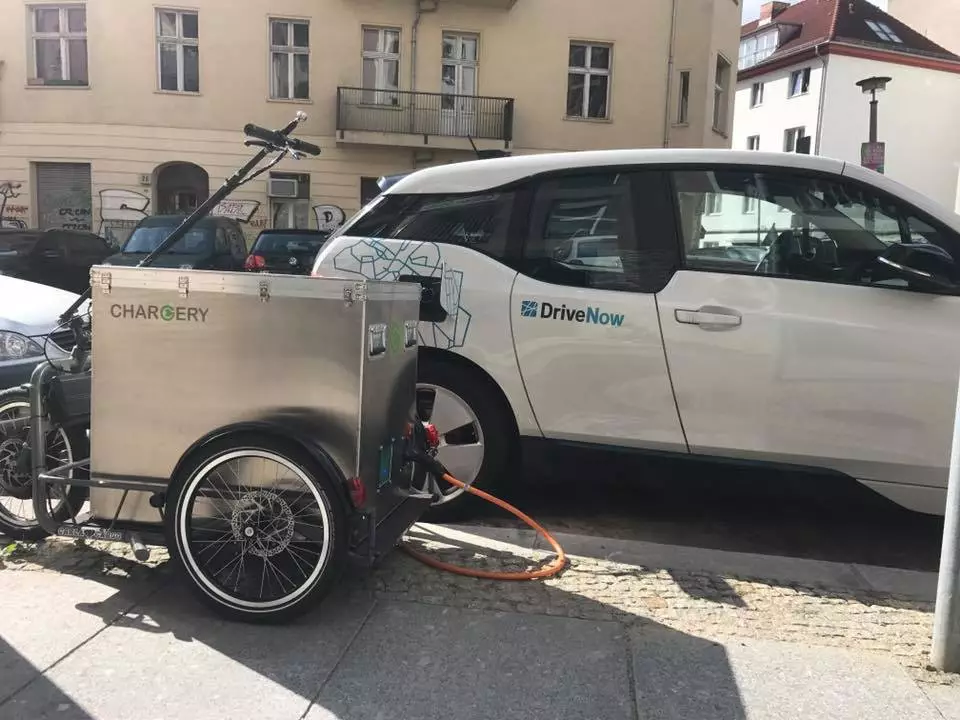At the moment, when your EV's battery is running low in urban areas, you may have to go a little out of your way to find a charging point. And even if you do locate one that's close by, you could find it already in use or blocked by an inconsiderate driver's combustion engine vehicle. Though auto makers and fuel suppliers have committed to installing more chargers to meet rising EV demand, Berlin's Chargery proposes bringing the charging station to its customers by bicycle.
At the moment, the service is focusing on businesses but when the scheme rolls out to private customers, bookings will be made via an iOS/Android companion app for a pay per use model, with the price inclusive of delivery.
When a driver makes a booking, a bicycle courier with Chargery trailer measuring 1 meter in length and 0.65 meters wide (3.3 x 2.1 ft) and weighing about 150 kg (330 lb) in tow races to the agreed drop-off point. Once there, the motor-assisted trailer is unhitched from the bike and cabled up to the customer's vehicle.
"Right now we're using AC-charging," Chargery's Christian Lang told us. "So Typ1 and Typ2 AC-connectors are supported. We are currently working on DC-solutions – both CCS and CHAdeMO."

The courier leaves the box in situ and pedals off to pick up a discharged trailer that's been used by another customer. This is then taken to a decentralized charging hub to replenish its batteries, ready for the next call.
Chargery says that the electricity used to charge its battery-packed trailers is 100 percent sustainably sourced, and each trailer currently carries a dozen 2 kWh Li-ion battery packs. This should be enough for about 160 km (100 miles) of electric range, but the company is looking to increase capacity to 50 kWh in the future. Fast charging up to 35 kW is supported, the trailer is built to IP67 standards to protect it from weather and damage and 4G data transmission capabilities are included to allow for remote charge control.
The Chargery project is currently undergoing testing in collaboration with carsharing service DriveNow, and is expected to expand to other business schemes from April next year. By 2021, the company hopes to cover 13 cities in Europe, and have 350 trailers in operation.
Source: Chargery





